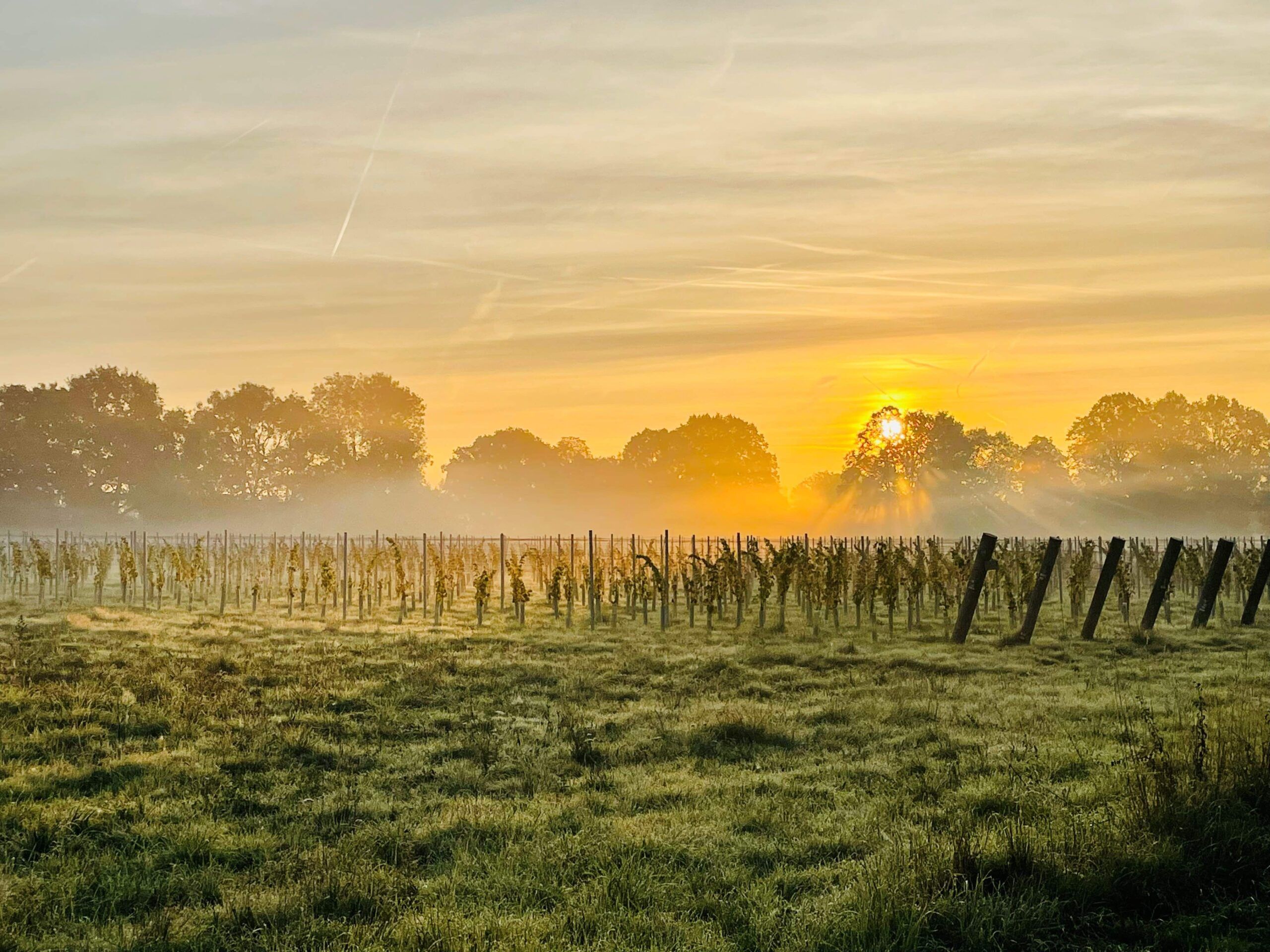The Real Wines in the Vines trade tasting from Les Caves de Pyrene event takes place on May 16 at Woodfine Wine in the Chiltern Hills. You can register to attend here.
Tell us about this new and very different event you have planned for English, Welsh wine, ciders and spirits in May?
It’s a trade tasting where artisan (mainly organic and biodynamic) UK wine producers will be pouring a range of their respective products in a regeneratively-farmed vineyard in the Chilterns. There will also be some cider producers, a micro-distillery from the Cotswolds and even an English sake brewery. It is the first trade tasting to bring together growers who work according to low-intervention principles.
Where did the inspiration for Real Wine in the Vines come from?
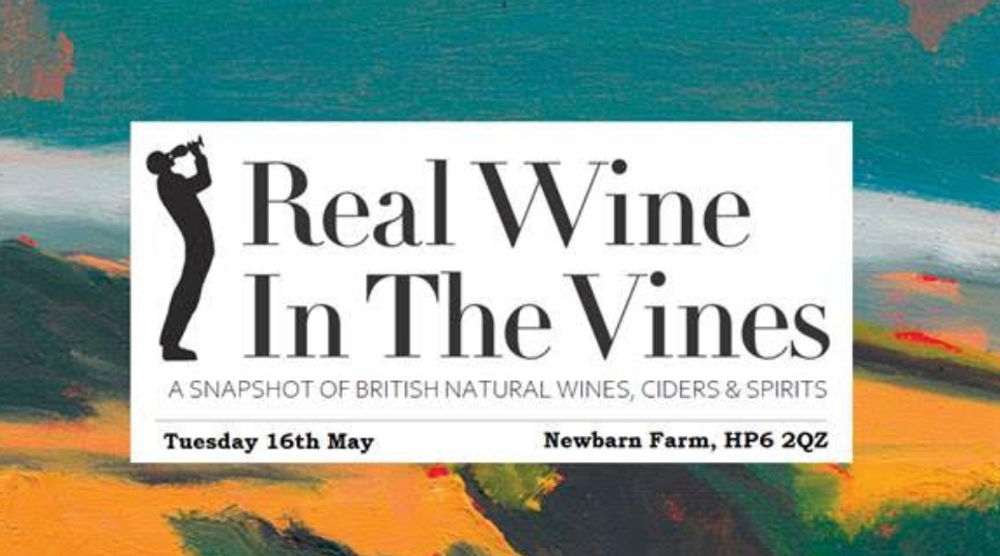
Real Wine in the Vines hopes to do for English low intervention wine producers what the Real Wine Fair does for Les Caves’ winemakers around the world
It arose from a combination of desires. We organise the Real Wine Fair (170 natural wine producers at London’s Tobacco Dock). This event takes place in alternate years, and, in the intervening period, we always give the Real Wine name a complete rest. This year, we wanted to keep the Real Wine brand in the minds of trade whilst at the same time organising a much smaller, more focused event.
We’ve always wanted to take Real Wine outside London and present wines in a more natural environment. When we visited the farm at Woodfine Wines and discovered their holistic farming philosophy, the idea quickly took shape – a wine tasting in a vineyard that practised what it preached. My colleagues came up with the name Real Wine in The Vines – and it seemed apt as the event was to be very much about connecting with farming and the land itself.
What do you hope the event can achieve for English and Welsh wine and also all the other drinks producers involved?
Everyone knows by now that the UK is capable of producing quality sparkling wine. Whilst this requires winemaking skill, there is so more to be said about UK wine than that the industry is a brilliant facsimile of Champagne. We also wanted to shift the focus away from the perception that UK wine was all about process (winemaking) and move it towards farming. We felt there was perhaps one opportunity to ask these small and very different producers to come together and demonstrate the direction that UK wine might take – with some encouragement.
Why did you want to make this not just about English and Welsh wine but also involve cider and spirits producers as well?
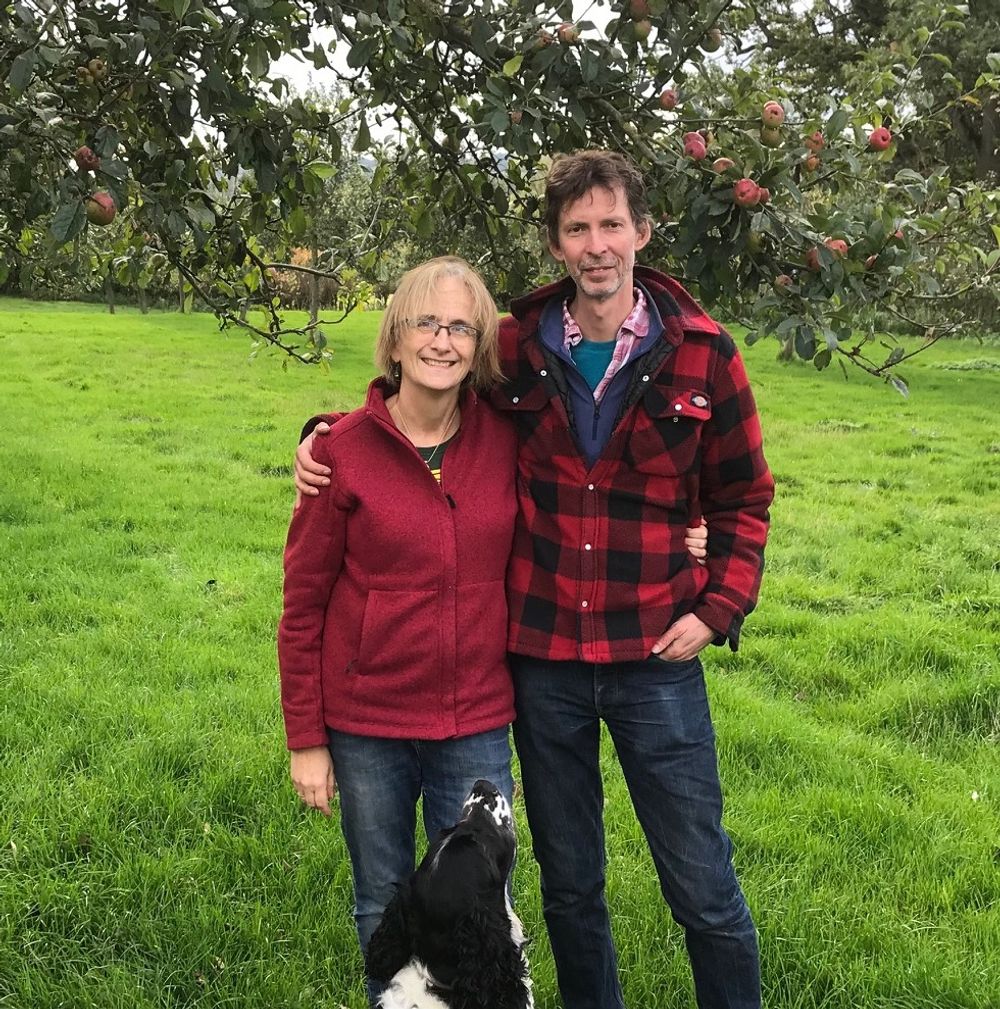
Susanna and James Forbes at Little Pomona are a key part of the burgeoning artisan cider movement in the UK who will also be celebrated at Real Wines in the Vines
I am sure we could have done a tasting entirely devoted to the great cider makers of this country.Cider has had a relatively bad rap because of the prevalence of commercial brands. We feel that the best ciders reflect a great UK heritage and that there is a new wave of producers who think of cider in the same way that we think of wine. We think wine, cider, spirits, sake and beer are kindred activities – the Real Wine Fair has always showcased and celebrated artisan drinks producers.
How have you chosen the producers who are taking part?
The criteria were the following: UK producers practising sustainable, organic and/or biodynamic and regenerative farming, crafting wines from hand-harvested fruit with fermentations using native yeasts and adding nothing other than minimal sulphites. Of course, not every producer will tick every box. Some will be on a journey or transitioning to these practices.
Who is the event aimed at and what do you hope they can get out of it?
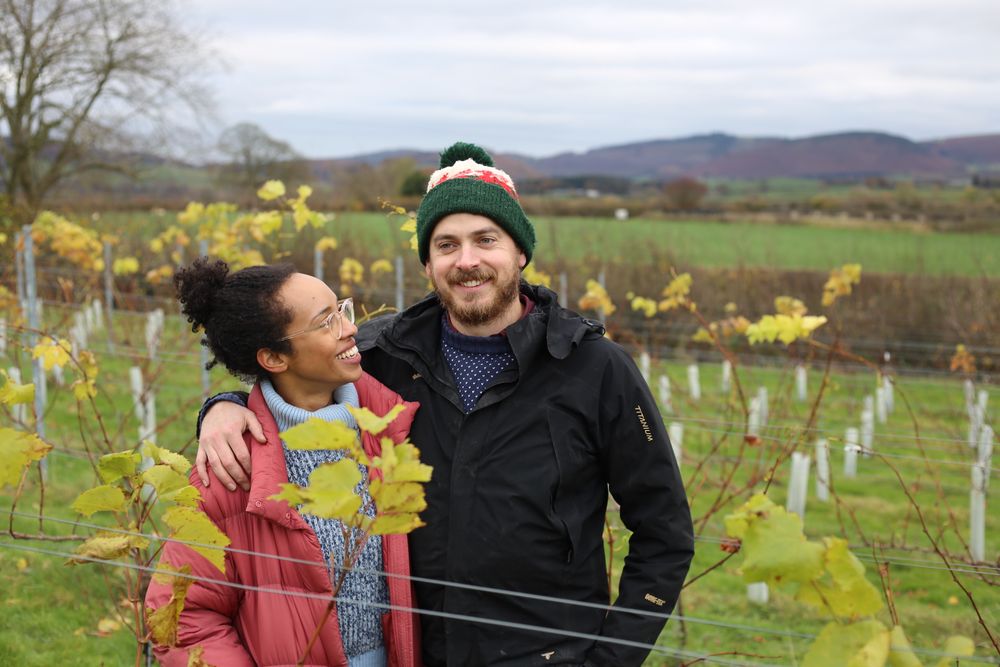
Real Wines in the Vines will look to shine the light on the work being done by producers like Susan and James Kinsey-Jones of Whinyard Rocks on the Welsh borders
The fair is aimed at all sectors of the wine trade. Sommeliers, wine buyers and retailer tend to pigeon-hole UK wine into the “good-for-Champagne-style-sparkling-wines” box. We want to introduce these buyers (or prospective buyers) to the outliers, the risk-takers, the small farmers and the individuals who are following their hearts. I hope that those who attend the fair will discover (and be pleasantly surprised) that UK wines are more than of niche interest, and that the best of them can compete on the same quality-playing-field as those from other countries. We would also like buyers to follow through in practice– a token UK wine on a wine list, is just that, tokenism. And we feel that other drinks, cider, for example, should be treated as “grown-up” drinks like wine. So, the fair provides an opportunity to educate and change perceptions about wines, ciders and spirits from this country.
What are your thoughts on English wine and how it is developing?
Climate change is having a marked effect on vineyards and the style of wines that they produce. Even 10 years ago, you would be lucky to find a year where the weather conditions allowed you to fully ripen grapes such as Pinot Noir and Chardonnay and make convincing still wines. Chaptalisation was the norm (addition of sugar to the unfermented must to raise the alcohol level). In recent vintages, Pinot Noir is effortlessly reaching abvs of 13%.
Equally, there is increasing investigation into PIWIs – highly resistant hybrid grape varities that allow for reduced chemical spraying regimes. If the weather becomes more extreme, these hybrids will come into their own and also help to reduce a vineyard’s carbon footprint/emissions.
What do you see as being the most exciting aspects about English wine?
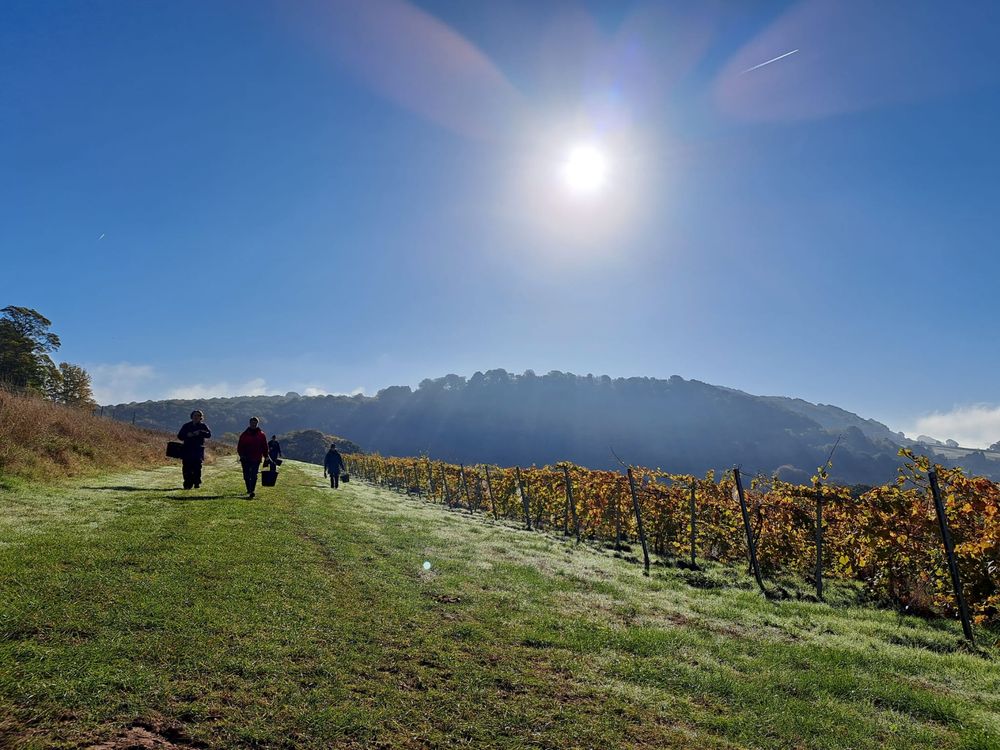
Ancre Hill will be showing its wines at Real Wines in the Vines
The steady identification of different and appropriate terroirs, the possibility of planting more interesting grape varieties, the realisation that there is more to (wine) life than traditional method sparkling wines. There is a lot more professionalism in the UK winemaking world, receptiveness to new ideas and willingness to challenge previous norms.
What would be your personal hope for the sector over the next five years?
To understand that growing grapes requires dedicated farming. Sustainability is a buzzword, but it should underpin both farming, wine production and business practice. It’s great to see the expansion of the UK wine industry, but it would be nice more variety. As for the wine trade, I would like its members (buyers and opinion-formers) to put aside any preconceptions and appreciate each and every wine on its merits and eventually to view the UK as a proper wine-producing region not a quaint side-line.
What producers do you have as part of the Les Caves de Pyrene portfolio?
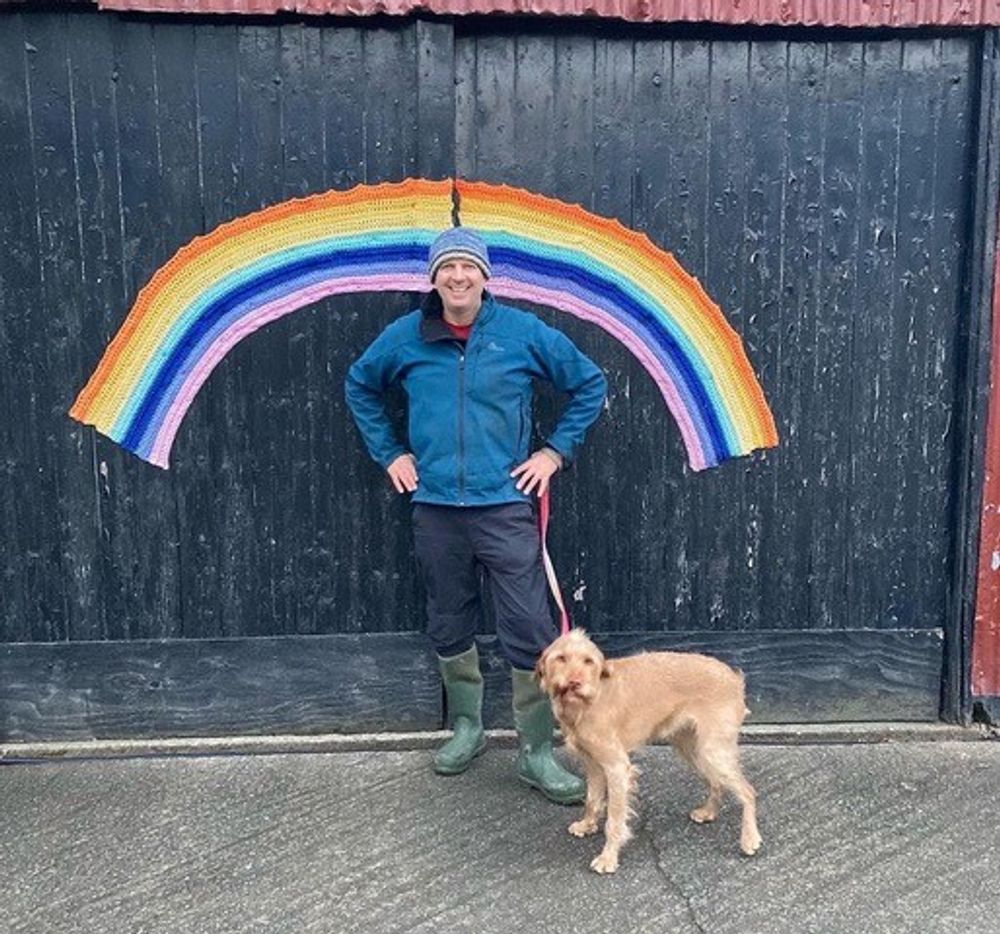
Tim Wildman and his Lost in a Field English winemaking initiative will be part of Real Wines in the Vines
We work with Davenport Winery; Tillingham/BenWalgate: Ancre Hill; Lost in a Field (Tim Wildman); Charlie Herring Wines; Little Pomona (Cider); Capreolus Distillery (spirits) and Kanpai Brewery (sake). We would also like to mention Under the Bonnet Wines who have a fantastic selection of small natural producers and brought their energy to Real Wine in the Vines.
Any thoughts on English spirits and ciders and what is happening in those sectors?
The quality is superb, but there is a long way to go in term of achieving due recognition. Cider can be so much more than people think. With rigorous selection and careful “pomology” one can find delicious and sophisticated beverages that merit the same respect as wine. Cider with its noble heritage, might be called the wine of Britain. We have the climate, we have the native apple varieties and we have the tradition. What is lacking is the confidence to work with apples in the same spirit as natural vignerons work with grapes, in other words, to let natural processes take their course, to ferment wild, to show vintage variation, to mature in barrels to give an extra dimension and textural layers, to bottle without further additions, not to filter out the cidery goodness.
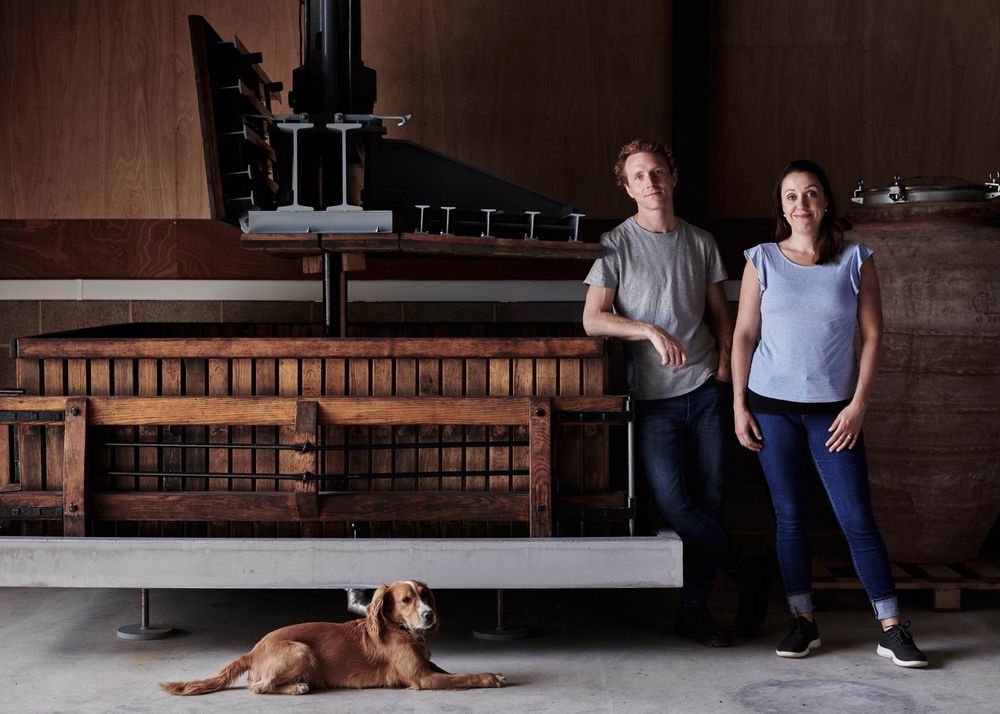
Daniel and Nicola Ham of Offbeat Wines in Wiltshire
The same goes for spirits – we have an incredible variety of different fruits in this country. It just requires fanatical attention to detail to make world-class eaux-de-vie and producers like Barney Wilczak (Capreolus) are rightfully garnering international accolades for their products.
How do people register to attend?
This will be a fully-ticketed trade event with a limit on capacity. Anyone interested in attending should reserves places on Eventbrite on the link below. There will be a free shuttle bus service operating every 45 minutes from Gerrards Cross Station to the venue. There will also be food stands at the tasting as well as masterclasses with guest speakers. If anyone has further enquiries then please send them to info@therealwinefair.com
